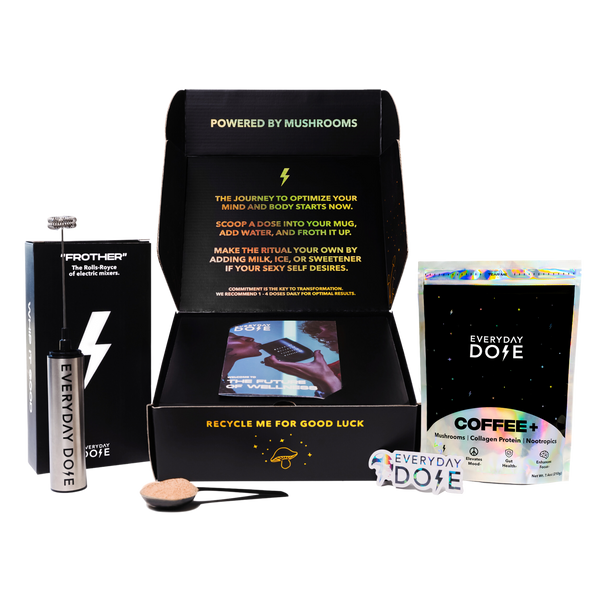

Mind Over Matter: Anxiety Science & Soothing Solutions

In today's fast-paced world, understanding and effectively managing our body's stress response is more than just coping; it's about mastering a fundamental biological process for optimal living.
But what really happens inside our bodies when we encounter these mental states? Let's peel back the layers and explore the intricate science of anxiety and stress.
Think of anxiety and stress not just as emotional states, but as complex biological processes. Let's break it down: imagine there's a seesaw inside you...
- On one end, you've got the sympathetic nervous system, our body's own alarm system. It kicks into gear with the 'fight or flight' response – heart racing, alertness spiking. Handy for outrunning bears, not so great when it's triggered by a packed inbox.
- In contrast, the parasympathetic system initiates 'rest and digest' activities, calming the heart rate and aiding recovery. Balancing this internal seesaw is key to our well-being.
Tip too far one way, and we might find ourselves in the grips of stress-related health issues. An individual's perception of a situation as threatening or overwhelming activates the body's stress response.
Past negative experiences can exacerbate stress and anxiety in similar future situations.
Additionally, environmental factors like workplace pressure and social dynamics significantly contribute to stress and anxiety.
The Role of Neurotransmitters in Stress Management
Neurologically, areas like the amygdala and hypothalamus are central to the stress response. They process threats and activate the stress response, respectively.
- Neurotransmitters and hormones like cortisol, adrenaline, and norepinephrine prepare the body for a "fight or flight" response.
- Dopamine, linked with the brain's reward system, influences mood and motivation, while serotonin enhances feelings of well-being.
- GABA acts as a neurological brake, promoting relaxation and countering anxiety.
Short-term and Long-term Impact
In the short term, stress can enhance focus and alertness, alongside immediate emotional responses like fear or irritability, and physical reactions like increased heart rate.
Physically, chronic stress contributes to cardiovascular disease, a weakened immune system, and gastrointestinal issues. Mentally, it can lead to depression, anxiety disorders, and burnout. Cognitive impairments from long-term stress include impacts on memory, concentration, and decision-making abilities.

Effectively managing stress involves repurposing the adrenaline surge from the sympathetic system for enhanced performance and focus. It's about transforming stress from a challenge into a useful tool.
And here's where simple, everyday practices come into play. Controlled breathing, yoga, and meditation aren't just trendy – they have science backing them up as ways to engage that parasympathetic system. For instance, controlled breathing can adjust blood pH and reduce blood pressure, impacting stress levels directly.
Harnessing Your Stress Response
- Controlled Breathing Exercises: Techniques like diaphragmatic breathing activate the parasympathetic system, fostering relaxation.
- Regular Physical Activity: Exercise reduces fatigue, improves concentration, and boosts cognitive function.
- Mindfulness and Meditation: These practices develop mental clarity and calmness, aiding in stress management.
- Adequate Sleep: Essential for bodily repair and stress response regulation.
- Healthy Diet: Choices rich in antioxidants and omega-3 fatty acids can positively affect stress levels.
Understanding your stress response system is crucial for effective life navigation. It's not about eliminating stress but achieving a balance where stress and relaxation coexist, leading to improved focus, energy, and well-being.
With the right knowledge and tools, including natural aids like Everyday Dose, you can transform stress from an adversary to an ally in your journey towards a healthier, more balanced life.
Everyday Dose: A Natural Ally in Stress Management
In our quest to redefine our relationship with stress, Everyday Dose blends the science of adaptogens with the ritual of your daily coffee. This innovative brew is more than just a beverage; it's a tool for empowering your body to adapt and thrive amidst life's inevitable stressors. With ingredients like:
- Lion's Mane and Chaga Mushrooms: These aren't your ordinary mushrooms. Lion's Mane and Chaga are renowned for their adaptogenic properties, which help bring your body into balance. They work synergistically to bolster mental clarity, lift your mood, and fortify your immune system, equipping you to handle stress more effectively.
- L‑Theanine: Often found in green tea, L‑Theanine is a natural relaxant that doesn't induce drowsiness. Instead, it promotes a state of calm, focused alertness, mitigating the jittery effects of caffeine.
Everyday Dose harnesses the power of these ingredients to create a unique beverage that supports your body's natural ability to adapt to stress.
By incorporating adaptogens known for their stress-modulating effects, Everyday Dose helps stabilize the body's hormonal responses to stress, promoting a sense of equilibrium and resilience.






